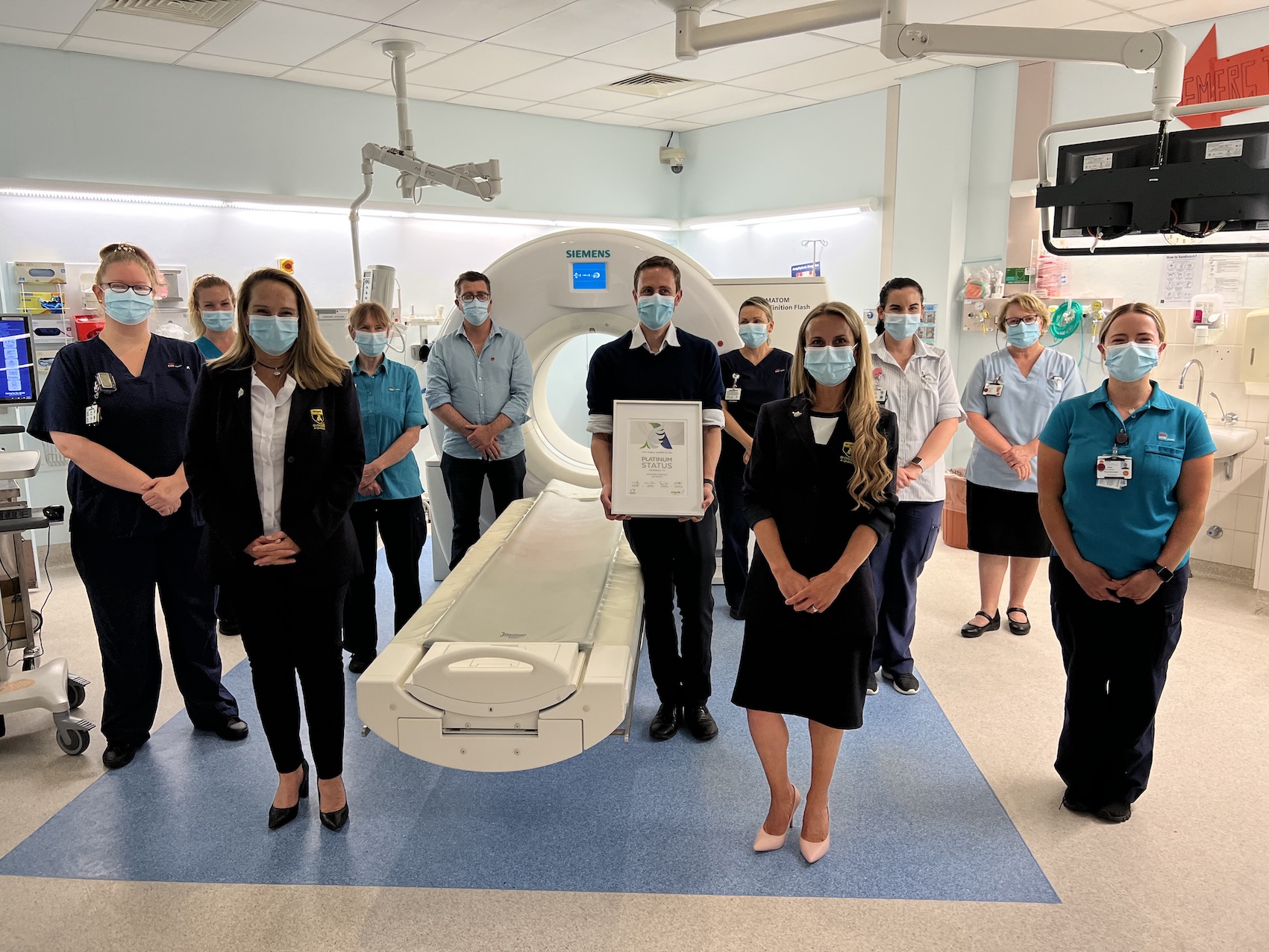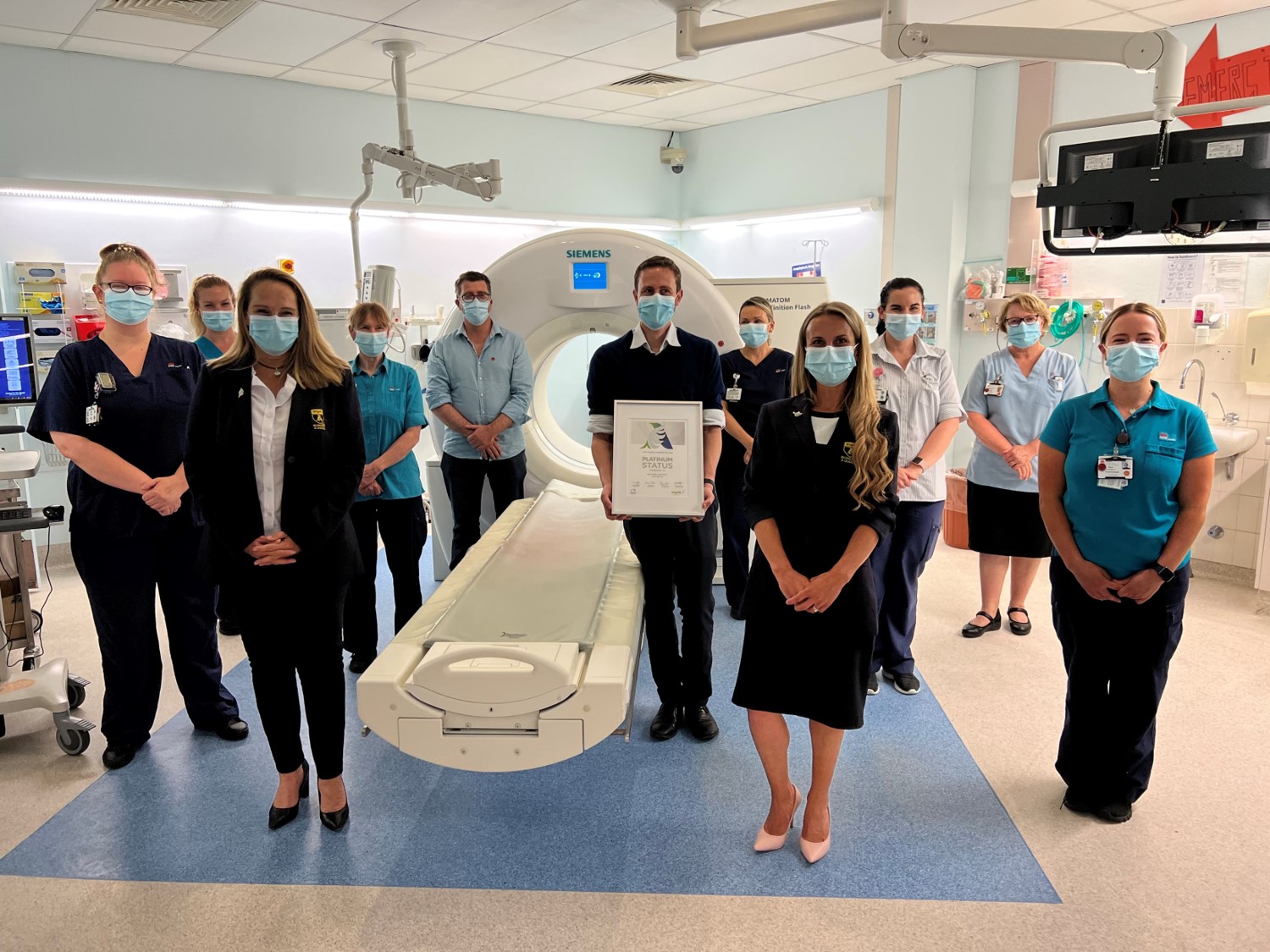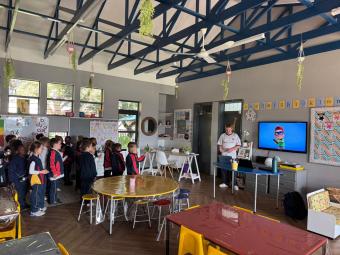Gosford Hospital in Australia reduced their door-to-needle time by almost 50% in 18 months. We talk to the stroke team to understand what steps they took to improve their processes.
 Gosford Hospital was one of five deserving recipients of a WSO Angels award in 2021, achieving platinum for meeting high standards in acute stroke treatment and care. It is one of only three hospitals in Australia to have achieved platinum status.
Gosford Hospital was one of five deserving recipients of a WSO Angels award in 2021, achieving platinum for meeting high standards in acute stroke treatment and care. It is one of only three hospitals in Australia to have achieved platinum status.
Gosford Hospital treats around 550 stroke patients a year, with up to 100 of these being haemorrhagic stroke. The hospital's stroke lead, Dr James Evans, said the WSO Angels Award was recognition for the team approach taken to enhance stroke care in the local area and its use of data to continually improve.
“We are dedicated to continuously improving stroke care standards,” Dr Evans said.
“Our patient-centred approach involves the whole team – the emergency department, CT, the neurology team, including doctors, nurses, physio, speech, occupational therapists, social work, pharmacists and rehabilitation team. It means everyone is focused on improving patient care."
“We have a dashboard of information we monitor daily, allowing us to look at a patient’s whole journey, from emergency through to recovery and rehabilitation.”
The stroke team intensified their focus on improving stroke care two years ago and has since gone on to achieve two WSO awards (Gold and Platinum).
In that time, the team has decreased its door-to-needle time by around 50 per cent within the last 18 months, which is an outstanding achievement.
Dr Bill O’Brien, who has been a neurologist at Gosford Hospital for 10 years, told Brain Matters the award was the result of years of hard work.
“We’ve spent years creating and honing a truly integrated multi-disciplinary team; one where everyone is equally valued, and the focus on gathering live data to achieve best practice outcomes for our patients,” Dr O’Brien said.”
“It’s fantastic to see all of that hard work recognised through not one, but two global awards.”
The hospital achieved outstanding results by developing a protocol to review its performance for every stroke call. It collects the data on each case for review.
The team holds two multi-disciplinary meetings (MDTs) per week, including the ambulance officers attending each patient, and goes over every stroke case in detail as a learning exercise.
Dr O’Brien said: “You don’t get good times randomly. It’s critical to analyse how long each step in the process from pre-notification to treatment takes, and why it takes that amount of time, and from there discuss ways we can improve those times in the future.”



